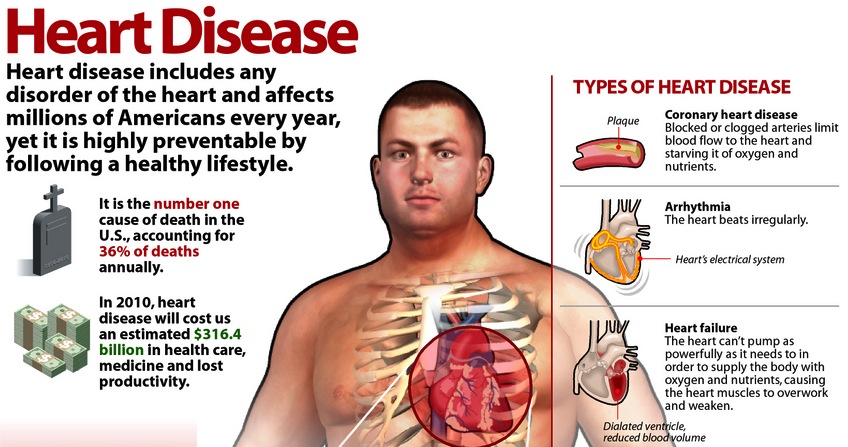Heart disease is a serious illness and affects millions of people every year. One way that you can know if you have heart disease, or if you are at risk for heart disease, is to understand what is heart disease. For this information you need a general understanding of what heart disease is. Some of the terms used here are, coronary heart disease, cardiovascular disease and heart disease.
Coronary artery disease, also known as CAD, is the most common form of heart disease. It occurs when there is too much fat and cholesterol (fat around the heart) in your arteries. The arteries become narrowed and harden, and a blood clot forms between them. This blockage can cause the heart to stop beating and die. This is called a heart attack or heart failure.
Heart attacks occur suddenly and can be a symptom of angina, a condition that causes pain in the chest, a burning sensation in the chest, and sometimes vomiting. If left untreated, angina will turn into a heart condition, and if left untreated it can become a heart attack, and so on. Other symptoms of angina include dizziness, shortness of breath, feeling like you just had a heart attack, or chest pains. You may also feel a lump in the chest or feel as if you are choking. In some cases angina can be mistaken for a heart attack, but the two are different and require different treatments.
Coronary heart disease, which is coronary heart disease, is the most dangerous form of heart disease. It can cause a heart attack if left untreated, even if there is no evidence of an angina or heart problem. As well as coronary heart disease, other forms of heart disease include heart valve disease, gallbladder disease, kidney disease, heart failure, heart muscle disease, thrombosis (blood clotting in the veins), and pulmonary embolism (a form of stroke). You should also know that if you are pregnant or overweight, this condition can increase your risk of developing these other heart diseases as well.

Heart disease can occur in any part of your heart, which means that if you have a problem with one part of your heart, it can affect the others. People who suffer from heart failure have problems with the heart valves. People who have heart muscle disease may suffer from blockages and heart valve dysfunction. Hypertension (high blood pressure) is another type of heart problem and can be a sign of heart disease as well.
Different types of heart problems can result in different treatments. Treatment is determined by the type of the disease, where you are, what you were doing before the condition developed, and how long it has been going on. Treatment varies based on the stage and the severity of the condition. Some people may have to go through surgery, while others may need to take medicine or stay on medication. Some types of heart problems can be treated without surgery, depending on the extent of the symptoms, but some people will need to be on medication, or take medication for life.
It is important to know that heart attacks and heart failures are preventable and reversible. Heart attacks can be prevented by not smoking, eating the right foods, exercise and having a good diet, and quitting smoking. Taking the proper steps to prevent them can mean that you will never experience a heart attack again.
Healthy lifestyles can mean that you will never experience heart disease, and you will live a longer life. Healthy living is the best way to avoid heart problems and they are preventable. So start today, and find out what is heart disease, because without realizing it, you can be living with it.
About the author